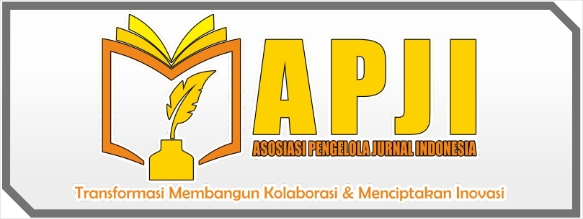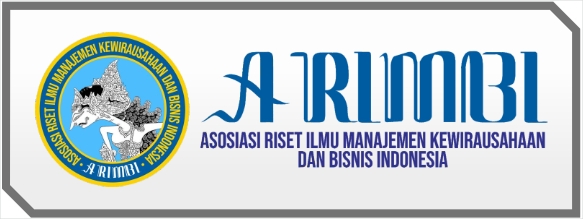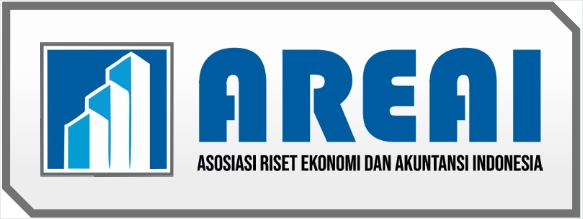Kota Salatiga Menuju Kota Gastronomi
DOI:
https://doi.org/10.58684/jarvic.v2i4.102Keywords:
performance, tourism, gastronomyAbstract
City of Gastronomy as a field of science that studies food and culture is one of the focuses of Salatiga City to become one of the Culinary Creative Cities in the UCCN international event. In this case, the potential and diversity of social culture in Salatiga must be able to be utilized properly and maximally to achieve the goal of developing Salatiga City into a Gastronomic City. The Salatiga City Culture and Tourism Office through its main tasks and functions seeks to realize this. This study aims to determine the performance of the apparatus in the development of the Gastronomic City at the Culture and Tourism Office of the City of Salatiga, to determine the factors that hinder the development of the Gastronomic City and to determine the efforts made by the Culture and Tourism Office of Salatiga City in the development of the Gastronomic City. The research design used by the researcher is a qualitative research with a descriptive method and an inductive approach. Data collection techniques used are interviews, observation, and documentation. Furthermore, for data analysis techniques, researchers used data analysis techniques using the Miles and Huberman model which consisted of data collection, data reduction, data presentation, and drawing conclusions. The results of research based on the use of Performance Theory according to Agus Dwiyanto show that the performance of Apparatus in Gastronomic City Development can be said to be good in the dimensions of Productivity, Responsiveness, and Accountability and not good in the dimensions of Service Quality and Responsibility. There are several suggestions from the authors in this study for the need for maximum consistency and effort from the Culture and Tourism Office of Salatiga City so that the implementation of Gastronomy Development can be carried out optimally.
References
A.A. Anwar Prabu Mangkunegara. (2017). Manajemen Sumber Daya Manusia Perusahaan. Bandung : Remaja Rosdakarya
Badan Pusat Statistik Kota Salatiga. 2021. Kota Salatiga dalam Angka 2022. Salatiga : BPS Kota Salatiga
Badan Pusat Statistik Kota Salatiga. 2022. Kota Salatiga dalam Angka 2022. Salatiga : BPS Kota Salatiga
Dinas Komunikasi dan Informatika Kota Salatiga. 2020. Data Statistik Sektoral Kota Salatiga Semester 1 Tahun 2020. Salatiga : Diskominfo
. 2021. Data Statistik Sektoral Kota Salatiga Tahun 2020. Salatiga : Diskominfo
Dwiyanto, Agus. Dkk. (2017). Reformasi Birokrasi Publik Indonesia, Pusat Studi Kependudukan dan Kebijakan. Yogyakarta : Universitas Gadjah Mada.
Hayat. (2017). Manajemen Pelayanan Publik. Depok : PT Raja Grafindo Persada.
Ridwan.M.,& Aini,W.(2019). Perencanaan Pembangunan Daerah Tujuan Pariwisata. Yogyakarta: Deepublish
Simangunsong, F.(2017). Metodologi Penelitian Pemerintahan. Bandung : Alfabeta
Sugiyono. (2019). Metode Penelitian Kuantitatif, Kualitatif, dan R&D. Bandung : Alfabeta
Sulistyadi, Y., Eddyono, F., & Entas, D. (2021). Indikator Perencanaan Pengembangan Pariwisata Berkelanjutan (Issue November). Lampung : Aura.
Winarno,F.G., & Ahnan, S.A. (2017).Gastronomi Molekuler. Jakarta: Gramedia
Undang-Undang Nomor 10 Tahun 2009 tentang Kepariwisataan
Undang-Undang Nomor 5 Tahun 2014 tentang Aparatur Sipil Negara
Peraturan Pemerintah Nomor 50 Tahun 2011 tentang Rencana Induk Pembangunan Kepariwisataan Nasional Tahun 2019-2025
Peraturan Daerah Kota Salatiga Nomor 1 tahun 2015 tentang Penyelenggaraan Usaha Pariwisata
Peraturan Walikota Salatiga Nomor 107 Tahun 2020 tentang Kedudukan, Susunan Organisasi, Tugas dan Fungsi, serta Tata Kerja Dinas Kebudayaan dan Pariwisata
Jaya, I. W. P., & Ariana, I. G. P. (2014). Kepariwisataan Dalam Perlindungan Dan Pelestarian. Kerta Negara: Journal Ilmu Hukum, 2(5), 1–5.
Messakh, V.D., & Indonesia Ministry of Tourism. (2017). The Triangle Concept of Indonesian gastronomy. Second Global Report on Gastronomy Tourism Affiliate members Report. In Unwto (Vol. 16, pp. 82–83).
Septiany, D. (2020). Kinerja Dinas Kebudayaan dan Pariwisata Kota Tanjungpinang dapat Destinasi Wisata, Sumber : Renstra Dinas Kebudayaan dan Pariwisata Kota Tanjungpinang Adapun Rencana Kegiatan , dan Indikator Kinerja Dinas Kebudayaan dan. 1(2), 174–197.
Soeda,Elfira, Novie Pioh, dan Ventjie Kasenda.(2017). Kebijakan Pemerintah Daerah Dalam Pengembangan Pariwisata Di Kabupaten Kepulauan Talaud. Jurnal Eksekutif, 1(1), 1–11.















